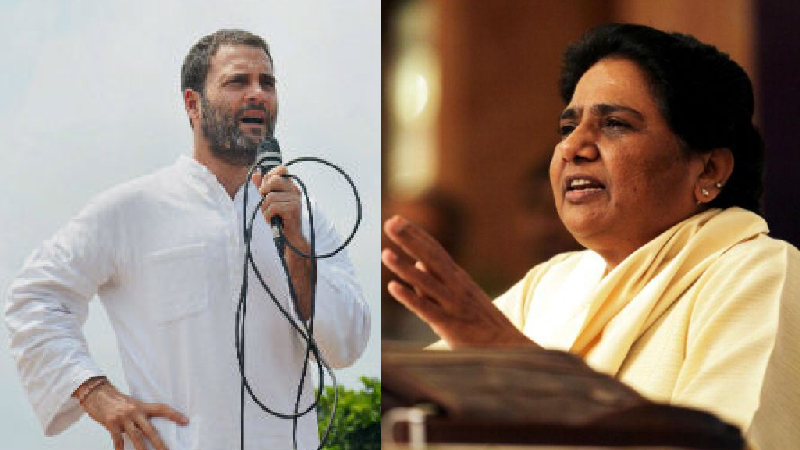Uttar Pradesh Election Flip – A Congress BSP Alliance

Uttar Pradesh, India’s most populous state has people more than the whole of Pakistan. Basically, UP state elections decide the fate of 16 % of India’s population. Imagine the importance. Additionally, Uttar Pradesh is home to supremely complex demographics because of which elections- both national & state witness severe vote bank politics or campaigns which are established on communal lines. Political parties gear up their defense and strategy of wooing multiple communities- linguistic, ethnic and religious solely for winning the elections. A simple reason being Uttar Pradesh is a game changing state. During national elections, this is one state which can make a party lagging in votes emerge victorious.
With a Samajwadi Party-Indian National Congress alliance seeming very prominent for the forthcoming elections, why not deconstruct and see if a Bahujan Samaj Party-Indian National Congress alliance is viable? The alliance does come with its share of shortcomings but there are incentives worth capitalizing.
Uttar Pradesh has seen every key political party led government in its history of existence. Congress traditionally relies on its position of secularism thus appearing approachable and fit for not only the Brahmins and the upper castes but also relatively to the Muslims, the Dalits and OBC’s. On the other hand, Bahujan Samaj Party considers its primary ideology to be, “Social Transformation and Economic Emancipation” of the Bahujan Samaj which consists of SC’s, ST’s, OBC’s and even religious minorities.
After the 2014 debacle, the Congress is clearly desperate to create a mark and emerge stronger and possibly revive their past glory. After the resignation of UP state unit head Rita Bahuguna-Joshi and her subsequent defection to the BJP, the Congress suffered their first blow and perhaps have realized that going solo in UP elections will take them nowhere. Meanwhile, the BSP and Mayawati are going out of their way to make the most of the feud in the Samajwadi Party. Apart from the traditional Bahujan Samaj vote banks, the BSP is eyeing the crucial Muslim vote bank which is usually won by the SP.
A Congress-BSP alliance can work in a lot of ways. As previously mentioned, the Congress cannot contest UP elections alone. They need a very strong regional partnership. Now, this can work for both SP and BSP. But with the clash of the titans i.e. Mulayam and Akhilesh, SP votes have split. Veteran leaders like Azam Khan who has been the face of the party in the Muslim community stand with Mulayam. Voters in SP bastions are uneasy with the rebellion of Akhilesh. But looking at present happenings, we sense Akhilesh taking the party ahead and not Mulayam. Meanwhile, Mayawati has made her very close associate Naseemuddin Siddiqui and his son Afzal the face of the BSP for the Muslims. She is looking at expanding the social composition of her party. By which I mean to say, Mayawati is attempting to establish a Dalit-Muslim nexus.
But there are reasons which could backfire the alliance. Historically, BSP and Congress have had their share of tensions. Also, the reach that SP has at the grass-root level across communities is much stronger than a BSP which is eventually building its expansion socially. BSP at this juncture cannot rely on Congress which is dealing with one of its least popular times in history.
Uttar Pradesh was a state which did not have a single Muslim MP in 2014, very unusual of its nature. Parties are wanting to exploit non-conventional vote banks and step out of their comfort zone. It is not going to be an easy battle. It has already started off with a great deal of sensationalism and politics. Pre-poll numbers and figures can’t predict this state. Only time can tell us what is in store for India’s largest state.





